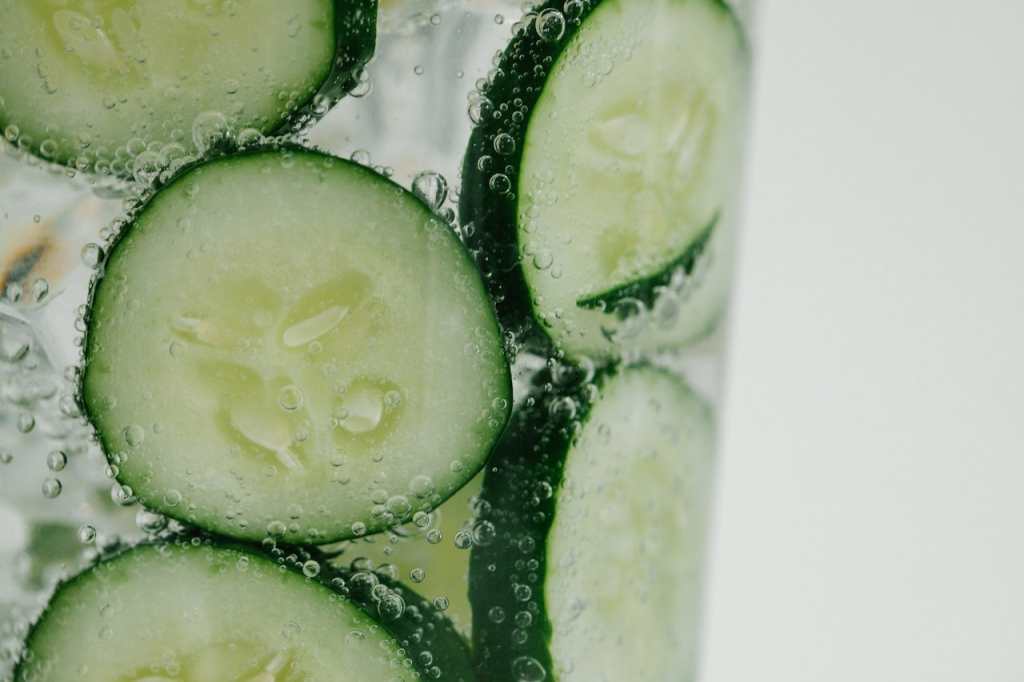Cucumber is a food with many properties and health benefits. When we talk about what it is used for, one of the first images we think of is placing two slices of cucumber on our eyes to reduce inflammation or including it in our diet when we aim to lose weight. However, it also helps to
This vegetable is characterized by its freshness and hydration. Its scientific name is Cucumis sativus, the cucumber belongs to the Cucurbitaceae family, which includes some 850 species of plants, almost all herbaceous, climbing, or creeping, which produce large, cylindrical, elongated fruits protected by a firm rind, according to the Spanish Nutrition Foundation.
It originates from the tropical regions of southern Asia, although it has been cultivated in India for over three thousand years. Over time it became popular in Greece and Rome and was then introduced to the rest of Europe. Today, it ranks fourth in world vegetable production, behind tomatoes, cabbage, and onions.
Properties
Cucumber is a vegetable that has a low caloric content, a high water content, and is rich in fiber, which is why it is used to lose weight.
Nutritionist Gabriela Morataya explains that this food provides small amounts of vitamins A, C, and E, and in lower levels vitamins from the B group such as B1, B2, and B3. In addition, small amounts of beta-carotene are found in the peel.
It is also a source of minerals such as potassium and trace elements such as silicon, molybdenum, copper, and manganese. It is rich in potassium, which helps the health of the nervous system.
Benefits of cucumber
Its main characteristic is its freshness and high percentage of water. The nutritional value of cucumber makes it beneficial for the digestive system and the heart, it is considered purifying and diuretic. Naturopath Carolina Hernández lists some benefits of cucumber.

- Diuretic: thanks to the percentage of potassium, cucumber helps to
- Anti-inflammatory: It is considered a natural anti-inflammatory.
- Prevents cancer: The lignans lariciresinol, pinoresinol, and secoisolariciresinol help prevent some types of cancer, such as breast, ovarian, and prostate cancer. Cucurbitacins, which give cucumber its bitter taste, also block the multiplication of cancer cells.
- Helps the heart: Lignans also have a positive effect against various cardiovascular diseases.
- Improves the immune system: its antioxidant properties, provided by vitamin C, stimulate the immune system. In addition, silicon, manganese, and copper help activate the body’s defenses.
- It is beneficial for the brain: the flavonol present in this food promotes neuronal connections, as well as being an antioxidant.
- It helps you lose weight: due to its diuretic and cleansing properties, as well as its percentage of water and fiber, which make it a satiating food, it is beneficial for losing weight and eliminating fluids.
- Maintains healthy skin: Vitamin C helps produce collagen and maintain healthy skin; in addition, silicon helps maintain the body’s soft tissues in good condition.
- It benefits digestion: it helps fight reflux, balance uric acid, and eliminate toxins from the body, thanks to the fiber, water, potassium, and magnesium it provides to the body.
- Prevents dehydration: cucumber has high percentages of water and important levels of electrolytes.
Should you eat cucumber with or without the peel?
“The peel contains insoluble fiber, while the soft part of the cucumber has soluble fiber. It is best to eat it with the peel, to take advantage of the nutrients it provides. It also provides us with B vitamins,” says nutritionist Gabriela Morataya.
How to choose it
Each food has its characteristics that help you choose it correctly. In this case, it is important that the cucumber has dark skin, without yellow or other colored spots. It should be firm to the touch, although in some places on the skin the texture changes, the firmness should be throughout the food.
Avoid those that have a paler color around the edges, because they are likely to taste more bitter.
Cucumbers can be stored uncut in the refrigerator for up to five days. If they have been cut, wrap them in plastic, as the soft part does not tolerate extreme temperatures.























+ There are no comments
Add yours